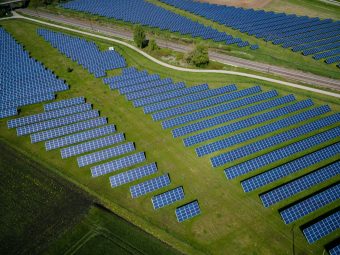
To improve agricultural production, the Italian Ministry of Agriculture, Food Sovereignty and Forests proposed a draft regulation on agriculture, which, among other things, bans the installation of photovoltaic structures on agricultural land.
According to the Italian media, the Council of Ministers will soon consider the draft regulation. It is not yet known whether the Minister of Agriculture, Francesco Lollobrigida, will decide to confirm the ban on solar energy despite the criticism from Italia Solare.
The Italian association Italia Solare objected strongly to the Ministry, noting that solar energy is essential to achieve the country’s energy independence and security at low costs.
The Ministry has incorporated a ban on the construction of solar power plants on arable land in measures to support agriculture due to the potential negative impacts of photovoltaic structures on agriculture and the landscape. Still, Italia Solare explains that it would be sufficient to identify the areas where solar panels can be installed so that they do not harm agriculture and nature.
The Association said that only one per cent of unoccupied agricultural land could provide Italy with 25GW of solar energy by 2030, while the remaining 25GW can be installed on roofs. This would allow the country to meet its 50 GW of solar energy goal by 2030.
More:
- ROMANIA ADOPTS OFFSHORE WIND LAW
- WHAT IS THE SUN TAX AND WHY SOME COUNTRIES “PUNISH” THEIR PROSUMERS?
- SURGING INVESTMENT IN MANUFACTURING OF CLEAN ENERGY TECHNOLOGIES IS SUPPORTING ECONOMIC GROWTH
Should solar power plants be built on arable land?
While solar energy advocates generally support installing solar panels on arable land to decarbonize the energy sector and agriculture, some strongly oppose it.
The non-governmental organization Citizens for Responsible Solar from the United States warns that the construction of solar power plants on arable land can have several consequences, such as permanent deterioration of soil quality, usurpation of fertile soil that can be used for growing food for the next 30-40 years, potential water pollution and negative impact on wild animals.
One possible solution is agro-solar projects combining food production and solar energy, whose popularity in the world and the region has been growing year-on-year.
Italy already has several agro-solar plants, the largest of which is located in Sicily and spans 155 hectares.



